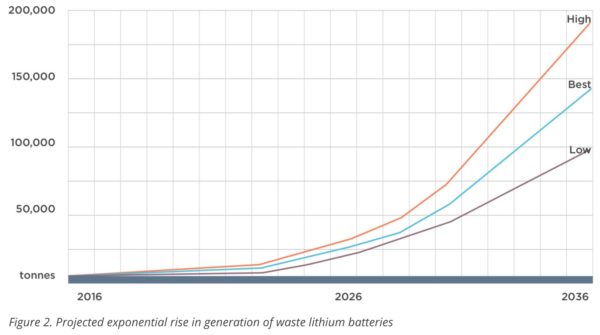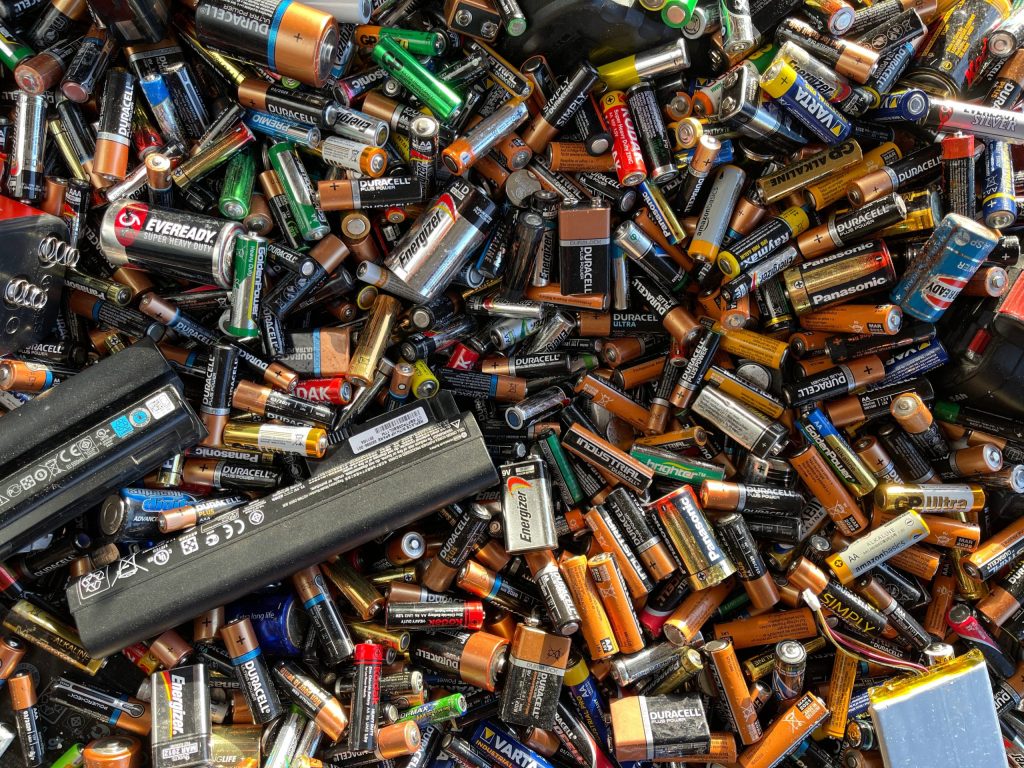According to Australia’s national science agency, the CSIRO, the battery uptake across all sectors to support the energy transition has opened up a potential $3.1 billion lithium-ion battery recycling industry.
“The demand for lithium-ion batteries is increasing globally, fuelled by the increasing electrification of transport and the renewable energy generation storage sector,” said Dr Anand Bhatt, lead author of the Australian Landscape for Lithium-Ion Battery Recycling and Reuse in 2020 report.
“This growth is leading to an emerging problem of end-of-life waste management,” Bhatt continued. Indeed, CSIRO research showed that lithium-ion battery waste is growing by 20% a year and could exceed 100,000 tonnes by 2036.
According to Jo Staines, Enterprise Fellow at the University of Melbourne and program lead for the Future Battery Industries Cooperative Research Centre (FBICRC), incorrect disposal is also a missed economic opportunity. “Lithium-ion batteries contain valuable battery metals and materials that should be recycled and reused,” Staines said. According to the FBICRC this lost value could translate from a $603 million to $3.1 billion opportunity. If recycled, 95 per cent of materials can be turned into new batteries or used in other high value industries.

However, as Evans said in a statement, “Our current battery recycling rate is just not good enough. Accreditation of the scheme gives both the public and industry assurance that the scheme aligns with Australia’s circular economy principles.”

“I’m putting all battery importers and retailers on notice that the government expects them to participate in the scheme to meet their recycling and waste reduction obligations,” continued Evans.
However, the government’s statement made no mention of the residential or large-scale energy storage sector, preferring to focus on recovering and recycling “button batteries and the batteries we all routinely find ourselves replacing as consumers including AAs and AAAs.”
Libby Chaplin, CEO of the Battery Stewardship Council (BSC) which will administer the Battery Stewardship Scheme, said this marks a pivotal step in the BSC’s journey towards launching a national collection network by January 2022.
“The BSC is very pleased with the announcement from the Australian government that our application for accrediation has been successful. This will give confidence to the battery collection and recycling industry to invest in infrastructure for collection and processing.
This content is protected by copyright and may not be reused. If you want to cooperate with us and would like to reuse some of our content, please contact: editors@pv-magazine.com.









1 comment
By submitting this form you agree to pv magazine using your data for the purposes of publishing your comment.
Your personal data will only be disclosed or otherwise transmitted to third parties for the purposes of spam filtering or if this is necessary for technical maintenance of the website. Any other transfer to third parties will not take place unless this is justified on the basis of applicable data protection regulations or if pv magazine is legally obliged to do so.
You may revoke this consent at any time with effect for the future, in which case your personal data will be deleted immediately. Otherwise, your data will be deleted if pv magazine has processed your request or the purpose of data storage is fulfilled.
Further information on data privacy can be found in our Data Protection Policy.